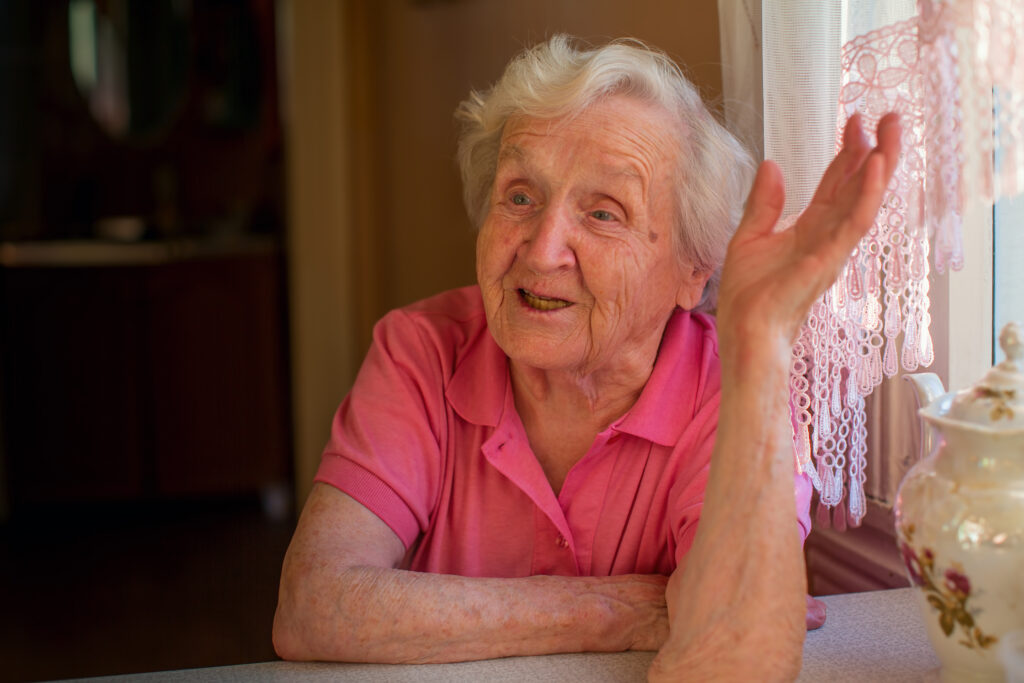By: Julee Lockard

In my professional role as an occupational therapist, I spoke to a client in an assisted living facility and asked her how the COVID 19 pandemic has impacted her life. She said “it really hasn’t changed much for me except I can’t eat in the (public) dining room.” Others desperately miss visits from their families but not much else. The majority however are suffering from the mental and physical impact of quarantine. Whether living alone at home or communally in a senior facility, our older adults adapt to staying home as they age. The recent stay at home orders have put a magnifying glass on elder care in our broader society. Our current lifestyles mimic many of the experiences of our aging population. Below are some of the circumstances older adults may encounter in their normal states of living. COVID-19 has heightened these circumstances for older adults and for society as a whole as well.
Impacts of COVID-19 on Older Adults and Society
Social Isolation is a state of near complete isolation from others and society. It can lead to depression, poor sleep, decreased executive functioning, cognitive decline, poor cardiovascular function and compromised immunity at any age. Families and individuals are confined to their homes with minimal contact to the outside world. Many families do not live near loved ones or are unable to visit loved ones in facilities. To help alleviate social isolation, some families have chosen to bring older family members into their homes.
Experiential/Sensory Deprivation is the removal of stimuli of one or more senses. Six-foot social distancing and the use of protective gear has severely limited physical and emotional contact especially for those who live alone. When was the last time your loved one felt the grass on bare feet, had a big bear hug, or sat in the sunshine listening to birds chirp? Little opportunity is available and some lose motivation to leave their rooms or homes. Sensory deprivation can lead to increased anxiety, hallucinations and depression. Confinement has other side effects including less activity and exercise that contribute to falls, confusion and loss of circadian rhythms.
Occupational Deprivation is a restriction in participation in meaningful or necessary activities outside of our control. It can occur abruptly due to an illness or accident or gradually as we age. As we pass through life’s stages, our roles change. We retire. Travel and active hobbies such as skiing or golf become more difficult and finally end. Lack of regular exercise and cognitive stimulation, impairs mental clarity, balance and strength increasing risk for falls. Hygiene routines evolve and older adults may require assistance for their daily activities further losing independence and dignity.
Technical Incompetency is the inability to effectively use technology for its intended purpose. With telehealth’s rapid implementation, increased reliance on Zoom and Facetime to stay connected has further increased the gap of access. Frustration is frequently experienced by users who are uncomfortable or unable to manage video conferencing products.

How Will the Pandemic Change Us?
COVID-19 has punctuated with personal experience the challenges some of our older adults face. Collectively, we have had an abrupt change in our routines: schools close and morph to e-learning, jobs are lost, we work from home, and essential workers wear full protective gear. Fewer stores are open with reduced hours, restaurants are limited to takeout and outdoor dining, social events are cancelled or moved online. Without the benefit of technology, the ability to participate in meaningful activities would be even more pronounced if not impossible. Imagine the world pandemic had occurred 20 or even 10 years ago. While we long to get back to some normalcy, this is for many seniors their reality which can be a very lonely place. Will this insight bring about more empathy, initiate more engagement, and motivate change for the better? Will this pandemic bring a stronger sense of community and family? Will we as fellow humans seek out the lonely? Will there be a greater understanding of the need for physical contact, affection and meaningful interactions?
Occupational Therapists Can Help
Occupational therapy’s core concern is to enable engagement for all people in meaningful and valuable activities of daily living for optimal health, well-being and quality of life. Occupational therapists are experts at assessing abilities, potential, social and environmental context to help guide clients toward their desired future life. They remove barriers, provide resources and modify environments to enable people to live life to its fullest. Additionally, occupational therapists that specialize in home modifications will help plan for the future goals and needs, assess the home’s fit and provide an individualized plan.
To find an Occupational Therapist in your area who specializes in home life assessments and modifications, visit www.HMOTA.net
Written by:
Julee Lockard, MS, OTR/L, CAPS
Just Right at Home, LLC–Western Chicago Suburbs
Edited by:
Kathy Subasic, PhD, OTR/L, CAPS, ECHM
Forever Home, LLC | www.foreverhomect.com
